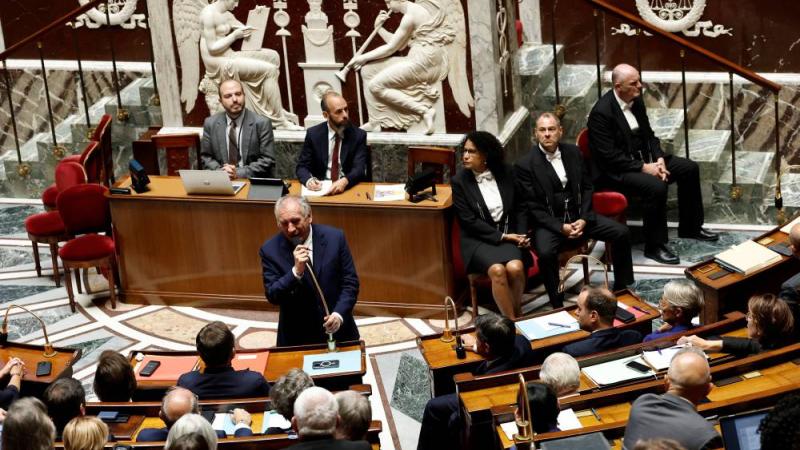Paris witnesses a new government crisis.. The French parliament ousts Prime Minister Bayrou

In a historic vote, the French parliament on Monday, September 8, ousted Prime Minister François Bayrou's government, deepening the political crisis in the country and placing President Emmanuel Macron in the position of choosing a fifth prime minister in less than two years.
The vote that ended the government's term, which lasted less than nine months, was due to its controversial plans to rein in the soaring public debt. Bayrou (74 years old) now has to submit his resignation, leaving Macron with limited options at a time when financial markets are expressing concern about stability.
In response to the developments, the Élysée Palace announced that President Macron "will appoint a new prime minister in the coming days." Macron faces two difficult choices: either appoint a fifth prime minister in record time or dissolve the National Assembly and call for early legislative elections.
With this departure, Bayrou becomes the second prime minister to leave office within a year, following the collapse of Michel Barnier's government last December.
Bayrou had defended austerity plans aimed at addressing the public debt crisis just before the vote, warning that excessive debt levels pose a "danger to the country's life." He defiantly stated while defending his budget: "The biggest risk was not to take any action and to let things continue as they are... as if nothing had changed."
Bayrou, the fourth prime minister for Macron in less than two years, explained that the vote was the result of "great pressures" facing France to reform its public finances, after last year's deficit reached double the maximum (3%) set by the European Union, while public debt reached 113.9% of GDP, equivalent to about three trillion and 300 billion euros.
The resigning prime minister warned lawmakers that any incoming government will inherit the same challenges, stating according to "Reuters": "You can bring down the government, but you cannot erase reality. Spending will continue to rise, and the burden of excessive debt will increase in weight and cost." He added in the parliamentary session: "The matter is vital, a matter of life or death for our survival; it is about controlling spending and reducing excessive indebtedness."
Opposition parties rejected the government's plans to address the debt, which include cutting public spending by 44 billion euros and increasing taxes to overcome a financial deficit exceeding 142 billion euros, and confirmed that they would vote against the minority government.
Although the apparent crisis is financial and economic, observers believe its roots are primarily political, referring to the complex political composition resulting from the early legislative elections on July 7, 2024, whose results contradicted opinion polls following the dissolution of the National Assembly in June 2024 after a landslide victory for the far-right in the European elections.